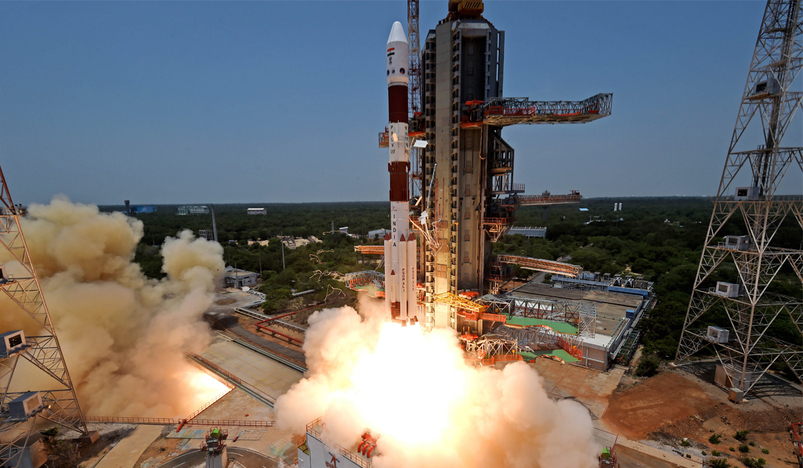
Aditya-L1 spacecraft
India launched its first space mission to study the sun on Saturday, less than two weeks after a successful uncrewed landing near the south polar region of the moon.
The Aditya-L1 spacecraft took off on board a satellite launch vehicle from the Sriharikota space center in southern India on a quest to study the sun from a point about 1.5 million kilometers (930,000 miles) from Earth. The point, known as L1, affords an uninterrupted view of the sun.
The spacecraft is equipped with seven payloads to study the sun’s corona, chromosphere, photosphere and solar wind, the Indian Space Research Organization said.
After over an hour, the ISRO said the launch was “accomplished successfully.”
“The vehicle has placed the satellite precisely into its intended orbit. India’s first solar observatory has begun its journey to the destination of Sun-Earth L1 point,” ISRO posted on the X platform, formerly known as Twitter.
The satellite is scheduled to take 125 days to reach the L1 point.
India became the first country to land a spacecraft near the moon’s south pole on Aug. 23 — a historic voyage to uncharted territory that scientists believe could hold vital reserves of frozen water. After a failed attempt to land on the moon in 2019, India joined the United States, Russia and China as only the fourth country to achieve the milestone.
Jitendra Singh, India’s junior minister for science and technology, praised the ISRO officials for their work on the latest launch.
“Congratulations India. Congratulations ISRO,” he said while being present at the ISRO control room. “It’s a sunshine moment for India.”
The sun study, combined with India’s successful moon landing, would completely change the image of the ISRO in the world community, said Manish Purohit, a former scientist at the research organization.
Hundreds of people who had gathered to watch the launch cheered as India’s sun mission took off.
Among the spectators, Prakash, who gave only one name, said the launch was “one more milestone” like the country’s recent moon mission. “This is going to set the bar high for ISRO,” he said.
“We are privileged to be Indian and witness this kind of developmental activities on the space center for India,” said Sridevi, who also gave only one name.
Once in place, the satellite would provide reliable forewarning of an onslaught of particles and radiation from heightened solar activity that has the potential to knock out power grids on Earth, said B.R. Guruprasad, a space scientist, in an article in The Times of India newspaper. The advanced warning can protect the satellites that are the backbone of the global economic structure as well as the people living in space stations.
“Those seven payloads are going to study the sun as a star in all the possible spectrum positions that we have visible, ultraviolet, and X-ray. … It’s like we’re going to get a black and white image, the color image and the high-definition image, 4K image of the sun, so that we don’t miss out on anything that is happening on the sun,” Purohit said.
.jpg)
Qatar Secures Place Among the World's Top 10 Wealthiest Nations
.jpg)
Hamad International Airport Witnesses Record Increase in Passenger Traffic

Saudi Arabia: Any visa holder can now perform Umrah

What are Qatar's Labour Laws on Annual Leave?
Leave a comment